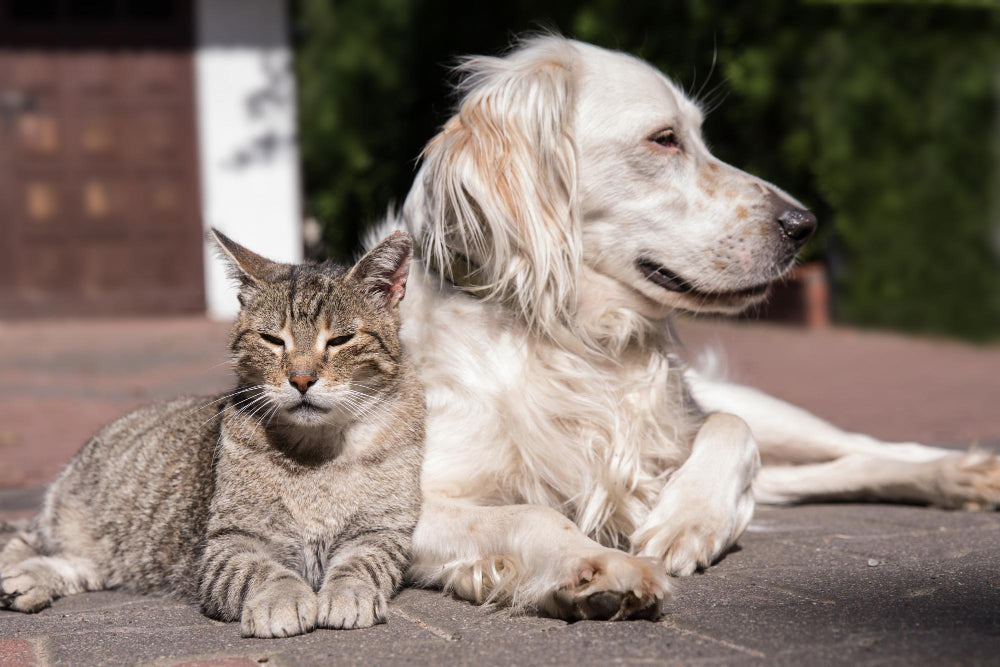A Comprehensive Guide to Senior Pet Care
As our beloved pets enter their golden years, their care needs evolve. Just as in humans, aging in pets can bring a slew of health issues and a decline in physical and cognitive functions. As a pet parent, you play a pivotal role in helping your furry companion navigate their senior years with comfort and dignity. This post will delve into various aspects of senior pet care, offering tips on how to help your pets age gracefully.
Understanding Aging in Pets
First, it’s important to recognize when your pet is considered 'senior.' Dogs and cats are generally thought to enter their senior years around the age of 7, but this can vary widely depending on the breed and size of the dog. Larger breeds may age faster, entering their senior years around 5 or 6, while smaller breeds might not show signs of aging until later. Cats often live into their teens or even twenties, but by age 7, they too can start to show age-related changes.
Regular Veterinary Check-Ups
As pets age, regular check-ups become even more crucial. Bi-annual veterinary visits are recommended for senior pets as many diseases common to senior pets can be managed more effectively if caught early. These visits should include:
- Comprehensive Physical Examination: To assess changes in weight, heart function, joint health, and other vital indicators.
- Bloodwork: To monitor organ function and detect conditions such as kidney disease, diabetes, or hormonal imbalances.
- Dental Care: To prevent dental disease, which can lead to systemic health problems.
- Vision and Hearing Assessment: To adjust their living environment as needed..
Nutritional Needs of Senior Pets
Nutrition plays a critical role in the health of an aging pet. Senior pets may need diets that are lower in calories but richer in nutrients. Key considerations include:
- High-Quality Protein: To maintain muscle mass and support organ function.
- Adjusted Fat and Calorie Levels: To prevent obesity, which can exacerbate issues like arthritis.
- Fiber: For gastrointestinal health.
- Supplements: Like glucosamine and chondroitin for joint health, and omega fatty acids for cognitive function and skin health.
Always consult your vet before making any changes to your pet’s diet or introducing supplements.
Exercise and Mobility
Maintaining a regular exercise routine is vital, but be mindful of your pet’s limits. For dogs, shorter, more frequent walks can keep them mobile without overexertion. Cats may enjoy short play sessions with toys that stimulate their natural hunting behaviors.
For pets with arthritis or mobility issues, consider:
- Joint Supplements: To support joint health and mobility.
- Physical Therapy: Including water therapy, which can be gentle on sore joints.
- Supportive Aids: Like ramps, steps, and orthopedic beds to make their lives easier and more comfortable.
Cognitive Health
Cognitive Dysfunction Syndrome (CDS) is akin to dementia in humans and can affect both dogs and cats. To support cognitive health:
- Mental Stimulation: Keep your pet mentally engaged with toys, new activities, and training.
- Environmental Enrichment: Provide interactive toys, puzzle feeders, and for cats, cat trees or perches.
- Routine: Maintain a consistent routine to provide a sense of security and reduce anxiety.
Comfortable Living Space
As pets age, they may appreciate changes to their living space. Soft, easily accessible beds can alleviate joint pain. Non-slip rugs can prevent falls on hard floors. Keep essential items like food, water, and litter boxes in accessible locations, particularly if your pet has mobility issues.
Emotional Needs
Senior pets may require more attention and reassurance as they age. They may become more clingy or require more affection. Be patient and give them the time and love they need.
Managing Health Issues
Chronic health issues like heart disease, kidney disease, or diabetes are more common in older pets. Work closely with your vet to manage these conditions with medications, diet, and home monitoring.
End-of-Life Care
As difficult as it is to think about, end-of-life care is a consideration for senior pets. Palliative care options exist to make your pet’s final days comfortable. When the time comes, have a discussion with your veterinarian about quality of life and humane end-of-life options, such as euthanasia. It’s a personal and compassionate decision to ensure your pet does not suffer.
Final Thoughts
Watching your pet age can be challenging, but it’s also an opportunity to deepen the bond you share. By proactively managing their health, adjusting their daily care routine, and ensuring they have a comfortable environment, you can help your pets enjoy their senior years with the grace and dignity they deserve. Remember, aging is not a disease but a life stage that calls for an adapted approach to care. Your companionship and loving care are what matter most to your pet in their twilight years.
Senior pet care is about making thoughtful, informed decisions that prioritize your pet's comfort and well-being. With the right care, your pet can enjoy a good quality of life well into their senior years, allowing you both to cherish every moment you have together.

